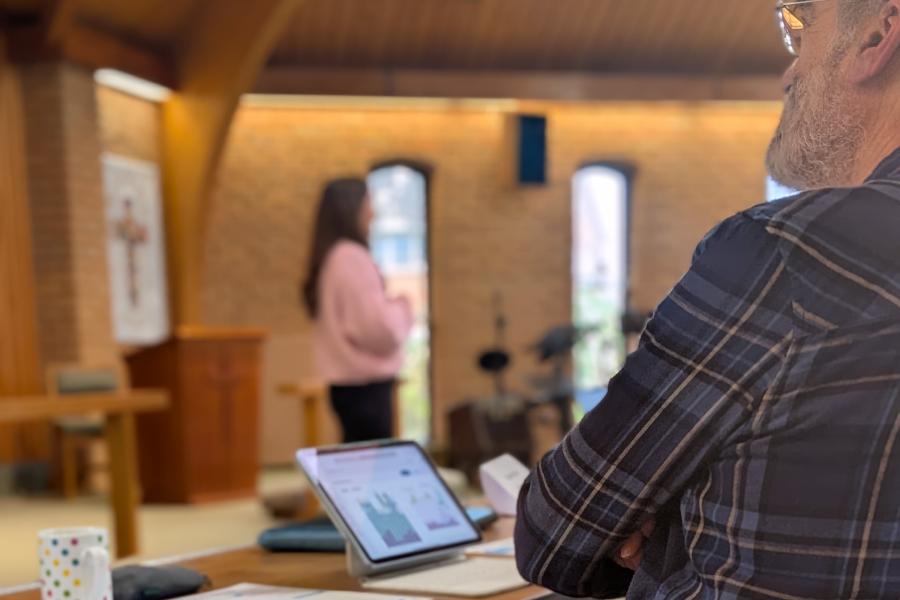
As Christians we are called to help those in need.
However, it is important to do this in a way that ensures we can help as best we can without causing problems for those in need and your church.
Helping people with Financial Problems
Giving to other Charities
Giving to Individuals
Helping people with Financial Problems
People struggling with financial uncertainty or debt need proper financial advice and it is best that we signpost them to organisations that are able to give them correct and current advice.
The following organisations may be a good place to start when offering places that are able to help:
- Citizens Advice offers advice on what is available both nationally and locally
- Christians Against Poverty offers debt support
- Step Change Debt Charity offers telephone support
- MoneyHelper is the Government's financial help website, covering a range of topics
Take care of just ‘googling’ for debt advice as not all providers are the same. Some appear very official and are profit-making or do not keep up to date with the latest changes to the benefits system.
You can also help people who are facing financial difficulties by campaigning and lobbying your MP and businesses about the situations and structures which put people into debt. As well as Christians Against Poverty, you may wish to look at:
The Charity Commission has restated its rules for charities involved with political activity or campaigning, if you do wish to engage with this work it is advisable to familiarise yourself with their advice. More can be found here.
Giving to other Charities
Many churches give a proportion of their annual income to other charities and charitable organisations. This is an important principle of our faith; giving to help others from what we have received and helping to build the Kingdom of God. However, as with all aspects of our church's finances, it should be carefully considered to ensure that you are giving in a way that agrees with your Church's principles. Doing this not only helps your Church and parishioners own their giving and feel involved, but can also help the charity you are giving to better know you and your hopes for the donation. Doing this well can also be a further opportunity for mission within your parish, for example, collecting and giving to a local foodbank may help others in your community to give and engage with the church.
You should write a short policy as a PCC as to how you will decide the amount you wish to give away (a percentage of income or a set amount), how you will apportion this between charities (a proportion to local, national and international charities), and how you will decide which charities to give it to (will the PCC decide, will you ask for suggestions from the congregation).
You will also want to consider whether you want to give to a specific purpose in the charity, or to unrestricted funds. For example, you may want to give a set amount in response to an emergency appeal but otherwise give in an unrestricted manner, meaning that the charity can use it for their work that might not attract as much funding but is still vital for its smooth running.
You may also want to ask the charities for certain documents, such as their annual accounts, safeguarding policies or (in the UK) proof of public liability. These help you to make sure that the charity is viable, that your money will be used well and that the organisation ensures the care of those who it works with.
For further information, please see the Charity Commission website.
Giving to Individuals
Churches are vital in helping many families and individuals who struggle to make ends meet and this is an important aspect of our Christian witness. Some churches have endowed funds to help the poor of the parish even if you don't there may be times when you want to directly help those who are struggling financially.
However, in order to protect yourself and those you are ministering to you should put some guidelines in place. These should include how donations to individuals are decided, what the limit is to any one donation, how to deal with conflicts of interest, and how records will be kept. Further information about creating a Gifts Policy can be found here.
It is also suggested that:
- your Safeguarding policy is reviewed regularly and you abide by it with any donations you might give to individuals.
- you give an object (such as school uniforms, food, or a school laptop) rather than cash. If someone is needing money for electricity or travel, go with them and top up the card or buy the ticket.
- you keep a record of who you have given to and how much you have given them - in some circumstances, if you give a large amount to a single family it can have tax implications!
- you have at least two people agree to any donation and that neither one is related to or living with the beneficiary.
- you consider the need for discretion and confidentiality of the individual in need, so only a small group are aware (for example the vicar, churchwardens and treasurer) of that need.
- you consider what follow-up pastoral support is appropriate.
- two people are present when the donation is given, and that it is clear that there is no expectation of repayment.
Please remember you must not loan or lend money to an individual or family, as to do so you must be registered with the relevant regulatory body (such as the Financial Conduct Authority).
A good blog looking at the potential conflict with giving church members gifts can be found at Stewardship with a full paper downloadable from here.
